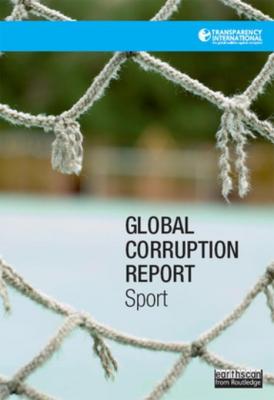EARLY THIS YEAR Transparency International published the report – Global Corruption Report: Sport. The report focused on corruption issues in the handling of major sporting events, and comprehensively analyzing sports corruption in organisations, government, sponsors, athletes and several more. The report looked at a dozen topics surrounding sports and how corruption is a risk to sports governance, major events, and the business of sport.
In May 2015 nine FIFA officials and affiliated corporate executives were arrested for racketeering, wire fraud, and money laundering conspiracies. For those of us that are not familiar with the first corrupt act mentioned above, racketeering happens when a company, or any individual, secretly causes a problem and then gets paid to solve it. It is a form of extortion. The arrest of those FIFA officials brought to light the existence of corruption within a major sporting body, and its ripple effect has continued to shake sports organisations all over the world
Sports is a multi-billion dollar business industry. And because sports involves huge funds  some people with corrupt minds use sports to their advantage thereby imposing a risk to the use of sports as a way to live healthy, to showcase talent, and to financially give back to society.
some people with corrupt minds use sports to their advantage thereby imposing a risk to the use of sports as a way to live healthy, to showcase talent, and to financially give back to society.
Now that Vanuatu is currently organising itself towards hosting the 2017 South Pacific Mini Games preventing corruption in the planning processes is a requirement that must be emphasized. The South Pacific Mini Games is a major sporting event that will involve millions of vatu and tonnes of resources, therefore it is important to stay on track with good governance.
With regards to major sporting events, a universal analysis is that successful bidders often serve the interests of a few; and they could be athletes, real-estate owners, construction firms, and politicians. Furthermore, political and secret interests could harm the lives of many and definitely do not serve the majority of the population.
As mentioned, a general critique is that the interest of a few could harm the lives of many;
“These critiques are often linked with accusations of corrupt behaviour, for example against political officials who are accused of being misled by influential individuals and making decisions against the ‘real will’ of the majority. Such critiques regularly hinder the efficient planning and organising of these events. Furthermore, such, critiques undermine the positive image of sports organisations. The violent protests in Brazil in 2013 were a clear signal that successful sporting mega-events need to have the support of a broad majority of the population and need to be planned and managed in an accountable manner.” (Global Corruption Report: Sport, Pg. 170)
The Global Corruption Report on Sport further talks about several aspects of corruption in sports involving human resources, finances, planning decisions, and the management of sports events. The report is, according to David Conn who writes predominantly on football for British newspaper -The Guardian, “another contribution that sports must be true to the love people have for them.”
Transparency International aims to mobilise wider audiences in the fight against corruption through connecting the sports community to the wider movement against corruption. This ‘Corruption in Sport Initiative’ includes partnerships with experts, supporters and sponsors through new research, analysis, dialogue and key recommendations.
Transparency International’s focus areas are:
- Improving the governance of sport organisations
- Strengthening the integrity of the bidding, awarding and hosting of major sporting events
- Preventing and combatting match-fixing
CLICK HERE to download the Global Corruption Report on Sports.
